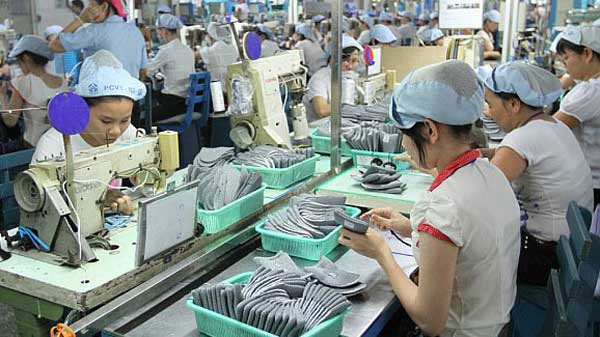
Do you think that the Trans-PacificPartnership agreement (TPP) will be signed next year?
The possibility of concluding negotiations for the TPP agreement next year remains open to all parties. By now more than 20 official negotiations have been held, coupled by mid-term or small group negotiations. Among these, five were held at a ministerial level, the latest in Australia.
On the sideline of the recent APEC summit in Beijing, leaders from 12 TPP countries agreed to speed up the negotiation process. Although they were not able to come up with a specific signing date for the TPP, they resolved to set one as soon as possible.
 |
|
Illustrative image. – File photo |
What hurdles remain for the signing of the TPP agreement?
On December 1, a Vietnamese delegation left for Washington to attend negotiations by member countries. High on the agenda were the issues of state-owned enterprises, the environment, an open market and particularly the country-of-origin principle. It is expected that the next round of negotiations will be held in mid-January. At that meeting, participants will focus negotiations on tough issues, including intellectual property rights.
According to schedule, the whole package of issues relating to the TPP agreement must be ready for a ministerial meeting to be held first so that the TPP agreement can be signed in 2015.
Are you optimistic about TPP negotiations so far?
All 12 countries negotiating for the agreement have agreed about the number of packages that will be covered by the agreement. Among them, consensus has been reached on quite many issues. What is remaining now, are tough and sensitive issues.
All countries have done their best to narrow down their differences. They have agreed to offer alternatives on tough issues that they so far cannot agree upon. And these alternatives are scheduled for the last meeting ministers so that the TPP agreement will be signed. Any way, we're optimistic about the ongoing negotiation process.
What do you think about Viet Nam's role during the discussion of the TPP agreement?
Viet Nam is an important member in negotiations as its market size is considerable and may offer big value added advantages to other members, including Australia, Japan, Chile, New Zealand and Singapore. These countries have already signed the Free Trade Agreement with Viet Nam, but once the TPP agreement is struck, it will bring about many benefits to them, particular in areas where Viet Nam has made a commitment, for example in service and investment.
Some people have described the TPP as a thorny rose and say that Viet Nam should be careful with it. What do you think?
To have a comprehensive impact assessment on the TPP is very difficult and demanding. I totally agree that TPP will present quite a few challenges, particularly the competitive pressure which comes from the reduction of import tariff to zero per cent and the opening of markets, investment and public procurement in the framework of the TPP.
However, zero import tariff is a real pressure, but it is not as big as in the other 11 partners of the TPP. Viet Nam has already signed the FTA with seven countries. They are Brunei, Malaysia, Singapore, Australia, Chile, New Zealand and Japan. In the near future, whether Viet Nam becomes a member of the TPP or not, the import tariff from these seven countries will remain zero.
For the remaining four countries - the United States, Canada, Mexico and Peru, I don't think there will be any competitive problem in the import-export structure between us and them, particularly between the US and Canada. The import-export between Viet Nam and these four countries will complement each other.
Meanwhile, once the TPP is struck, it will help Viet Nam balance its trade relations with key regional markets and avoid depending so much on one regional market. Having free trade relations with major markets like the US, Canada and Japan markets will give a push for Viet Nam's export.